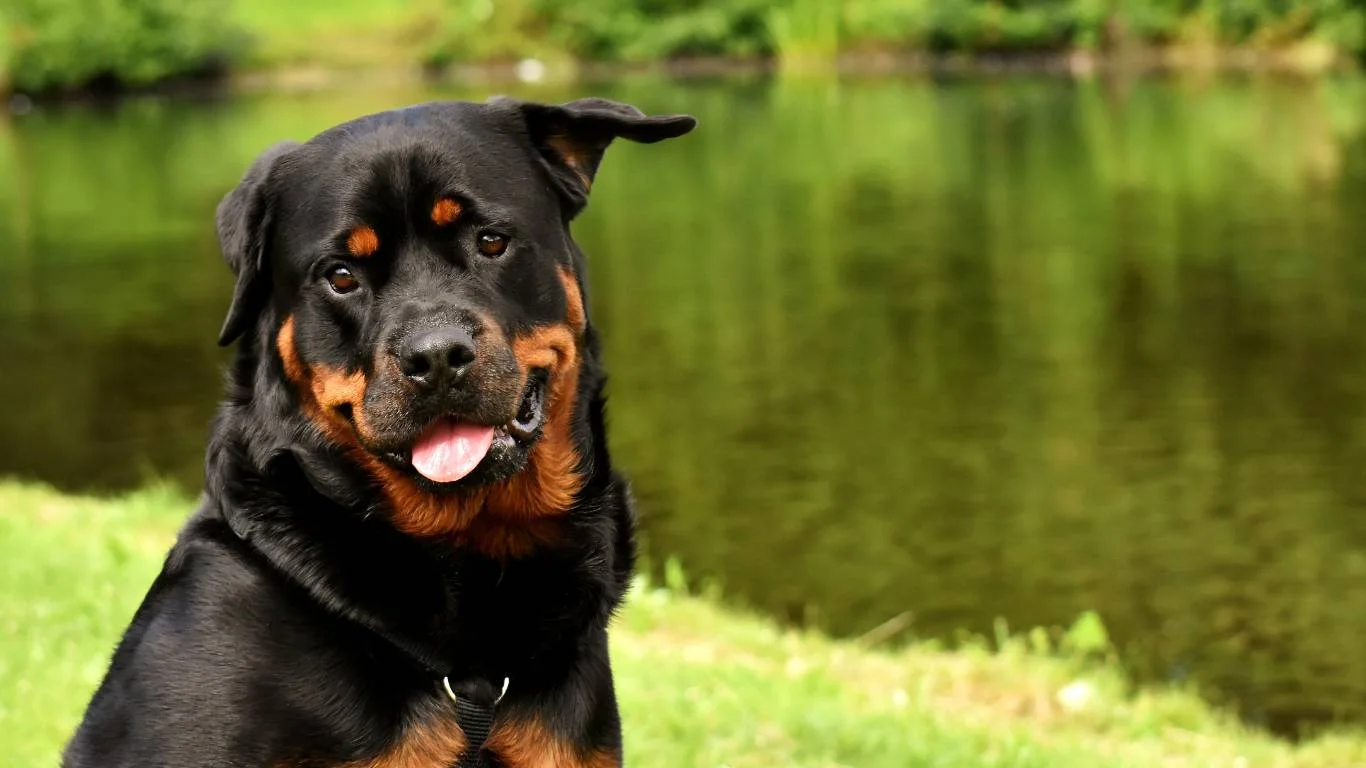How to Stop a Dog from Excessive Head Shaking: Easy Steps to Relief
If you’ve ever noticed your furry friend vigorously shaking their head more than usual, you might be wondering how to stop a dog from excessive head shaking. Trust me, as a veterinary assistant with a special focus on nutrition and pet wellness, I’ve seen this behavior pop up quite a bit—and it’s never just a quirky habit. It usually signals that something’s bothering your pup, whether it’s an itch, discomfort, or an underlying health issue. In this article, I’ll walk you through what causes this annoying (and sometimes worrisome) behavior, what you can do to help, and why ignoring it isn’t the best idea.
Why Is My Dog Shaking Its Head So Much?

First off, head shaking in dogs is pretty common. Dogs shake their heads to clear irritants or relieve an itch. But when it becomes excessive, it’s often a sign of discomfort that shouldn’t be overlooked. From my experience working closely with dogs in veterinary clinics, I’ve noticed many owners assume it’s just a harmless habit—but it can actually point to several underlying issues.
Here are some of the most frequent reasons why dogs shake their heads excessively:
- Ear infections: One of the most common culprits. Bacteria, yeast, or even parasites can irritate the ear canal, causing itching and pain.
- Foreign objects: Grass seeds, dirt, or small debris might get stuck in the ear, making your dog shake to get it out.
- Allergies: Just like humans, dogs can have allergies that trigger itchy skin and ears.
- Ear mites: Tiny parasites that cause intense irritation and inflammation.
- Injury or trauma: Sometimes, your dog might have a scratch or injury inside the ear that causes discomfort.
The Nutrition Connection: More Than Just What’s in the Bowl
One thing I’ve learned is that proper nutrition plays a big role in preventing some causes of excessive head shaking. When a dog’s immune system is strong and their diet supports healthy skin and coat, they’re less likely to develop infections or allergies that can trigger ear problems. In the clinic, I often recommend diets rich in omega-3 fatty acids, which help reduce inflammation and improve skin health. Supplements like fish oil or specialized veterinary diets can also be game changers.
If your dog’s shaking their head and you notice other symptoms like redness, discharge, or a bad smell coming from the ears, it’s time to pay attention. These signs often mean an infection is brewing, and left untreated, it can get worse fast.
How to Stop a Dog from Excessive Head Shaking: First Steps You Can Take

Now that you understand why your dog might be shaking their head so much, let’s talk about what you can do right away. In my years assisting vets, I’ve found that early intervention makes a huge difference, so don’t wait until things get severe.
Inspect and Clean the Ears Carefully
Gently checking your dog’s ears can help you spot obvious irritants like dirt or debris. Use a soft, damp cloth or a vet-approved ear cleaner—never use cotton swabs deep inside the ear canal, as they can push debris further in or damage the ear. If you see redness, swelling, or an unusual smell, it’s best to stop and consult your vet.
Keep Allergies in Check
If your dog has a history of allergies, managing their environment and diet is crucial. Sometimes food allergies cause ear inflammation that leads to shaking. In my experience, switching to a limited-ingredient diet or hypoallergenic food can reduce flare-ups dramatically. And of course, minimizing exposure to common allergens like pollen or dust can help.
Visit Your Veterinarian for a Proper Diagnosis
Sometimes, no matter how careful you are, the cause of excessive head shaking needs professional evaluation. Your vet can perform an ear exam, take swabs for testing, and prescribe the right medication if there’s an infection or parasites involved. Trust me, this is where the real relief begins—not just for your dog, but for you too.
Preventing Future Episodes of Head Shaking

Once you’ve tackled the current problem, it’s smart to think about prevention. Keeping your dog’s ears clean and dry after baths or swimming, maintaining a balanced diet, and regular vet check-ups can go a long way. Also, keeping an eye on your dog’s behavior helps catch early signs before things escalate.
Personally, I always advise dog owners to build a routine ear care habit. It’s easier to manage minor irritations early than to deal with a painful infection later on.
When to Worry: Signs That Excessive Head Shaking Needs Immediate Attention

From my time in the clinic, I’ve learned that while occasional head shaking might be no big deal, there are definitely moments when it’s a red flag. If your dog’s shaking their head so much it’s interfering with daily life or causing injury, you’ll want to act fast. Here’s what I always tell pet parents to watch for:
- Persistent shaking: If your dog is shaking their head multiple times an hour or several times a day, that’s a sign something’s really bothering them.
- Ear discharge or foul smell: Any yellow, green, or bloody discharge or a bad odor coming from the ear is a sign of infection.
- Redness and swelling: Inflamed ears that look painful or swollen need veterinary attention immediately.
- Scratching or rubbing ears on furniture: This often accompanies head shaking and means your dog is uncomfortable.
- Balance problems or tilting head: If your dog’s head is tilted to one side or they seem off-balance, it could mean the infection has affected their inner ear or nervous system.
- Behavior changes: Unusual irritability, lethargy, or loss of appetite might accompany ear problems, especially if pain or infection is involved.
These signs shouldn’t be ignored. When I see these symptoms, I immediately recommend scheduling a vet visit. Ear infections can progress quickly, and untreated they may lead to serious complications, including hearing loss.
Effective Treatments and Remedies for Excessive Head Shaking

Once your vet confirms the cause of your dog’s head shaking, treatment usually involves addressing the root problem directly. Based on what I’ve observed working alongside veterinarians, here’s a rundown of common treatments and helpful remedies:
Medication and Professional Care
Infections caused by bacteria or yeast usually require prescription ear drops or oral medications. These meds work best when applied exactly as directed and for the full course—even if your dog seems better early on. For ear mites, your vet might recommend specific anti-parasitic treatments. I’ve seen plenty of cases where consistent follow-through on medication resulted in fast relief and fewer relapses.
Sometimes, more severe infections or injuries call for thorough cleaning under sedation. This is definitely not a DIY task and requires professional handling to avoid causing further damage or pain.
Home Care Tips I Swear By
Outside of medication, there are a few simple things you can do at home to support your dog’s healing and prevent future head shaking:
- Keep ears dry: Moisture trapped in the ear can worsen infections. After baths or swimming, gently dry your dog’s ears with a soft towel or cotton ball.
- Regular ear checks: Make it a habit to inspect your dog’s ears once a week. Look for redness, wax buildup, or anything unusual.
- Gentle cleaning: Use vet-approved ear cleaners to maintain ear hygiene, but avoid over-cleaning, which can irritate the delicate skin inside the ear.
- Limit allergens: If your dog has known allergies, try to minimize exposure and stick to hypoallergenic diets or supplements that support skin health.
I always tell owners that patience is key here. Sometimes, dogs might resist ear care, but with gentle handling and positive reinforcement, most dogs learn to tolerate—and even enjoy—the routine.
Understanding Chronic Head Shaking: When It’s More Than Just an Ear Problem

While ear infections and irritants cover the bulk of cases, it’s worth mentioning that persistent head shaking can sometimes signal more complex health issues. From my personal experience, a few dogs I’ve worked with had underlying problems that weren’t immediately obvious:
- Neurological disorders: Certain brain or nerve issues can cause head shaking or tremors.
- Dental problems: Sometimes, pain from dental disease or abscesses can make dogs shake their heads.
- Vestibular disease: This affects balance and causes head tilt and shaking, mostly seen in older dogs.
- Chronic allergies: Long-term allergies can lead to repeated ear infections and ongoing discomfort.
If you notice your dog’s head shaking isn’t linked to visible ear issues or if treatments don’t seem to help, definitely push for a thorough vet evaluation. This might include neurological exams or dental checks, which can uncover hidden causes.
My advice? Don’t settle for just “it’ll get better.” Trust your gut, and if something feels off, keep digging until you have answers. Dogs can’t tell us when they’re hurting, so being their advocate makes all the difference.
Long-Term Care and Lifestyle Adjustments to Prevent Excessive Head Shaking

After working with countless dogs over the years, one thing I’ve learned is that preventing excessive head shaking isn’t just about fixing the immediate problem. It’s about making ongoing care and lifestyle adjustments that keep your dog’s ears healthy and comfortable for the long haul. Trust me, it’s way easier to prevent ear issues than to treat recurring infections or chronic irritation.
Here are some simple but effective strategies I personally recommend to dog owners who want to keep their pups’ head shaking to a minimum:
- Routine ear maintenance: Make ear checks and cleanings part of your regular grooming routine. This helps catch any signs of trouble early and keeps your dog’s ears free from excess wax and debris.
- Balanced nutrition: As someone who’s focused on pet nutrition, I can’t stress enough how much a diet rich in essential fatty acids, vitamins, and minerals helps promote healthy skin and ears. Feeding quality food tailored to your dog’s needs goes a long way.
- Manage allergies: If your dog suffers from seasonal or food allergies, work with your vet to develop an allergy management plan. This might include specialized diets, medications, or even allergy testing to identify triggers.
- Keep ears dry and clean after swimming: Water trapped in the ear canal can create the perfect environment for infections, so always dry your dog’s ears gently after baths or swims.
- Limit exposure to irritants: Pollen, dust, and household chemicals can aggravate sensitive ears. Minimizing your dog’s exposure to these can help reduce flare-ups.
From personal experience, I’ve seen owners who embrace these habits enjoy much happier dogs with fewer ear problems—and way less frantic head shaking!
Training Your Dog to Tolerate Ear Care

If your dog resists having their ears touched or cleaned, you’re not alone. Many dogs find ear care uncomfortable or strange at first. But here’s the good news: with patience and positive reinforcement, you can train your pup to tolerate—and even enjoy—the process.
Here are some tips I’ve gathered through my work and training sessions with dogs and their owners:
- Start slow: Begin by gently petting around your dog’s ears, rewarding calm behavior with treats and praise.
- Introduce tools gradually: Let your dog sniff and investigate ear cleaning supplies before using them.
- Keep sessions short: Especially in the beginning, aim for quick, positive experiences.
- Be consistent: Try to perform ear care at the same time and place to create a routine.
- Stay calm and patient: Dogs pick up on your emotions, so staying relaxed helps your dog feel safe.
When I’ve helped clients with dogs that dread ear care, these small steps have made a huge difference in turning a stressful task into a bonding moment.
When to Consult Specialists and Advanced Care Options
Sometimes, despite your best efforts, excessive head shaking persists or recurs frequently. In those cases, further investigation by veterinary specialists like dermatologists or neurologists might be necessary. Advanced diagnostics can include ear cultures, allergy testing, imaging, or neurologic evaluations to uncover tricky underlying causes.
I’ve seen dogs with complicated chronic ear issues finally find relief after specialized care—so don’t hesitate to ask your vet for referrals if the usual treatments aren’t cutting it.
References and Further Reading
- American Animal Hospital Association
- American Veterinary Medical Association
- American College of Veterinary Dermatology
Disclaimer
This article is intended for informational purposes only and does not substitute professional veterinary advice. If your dog is experiencing excessive head shaking or any signs of ear discomfort, please consult your veterinarian promptly for an accurate diagnosis and appropriate treatment.






